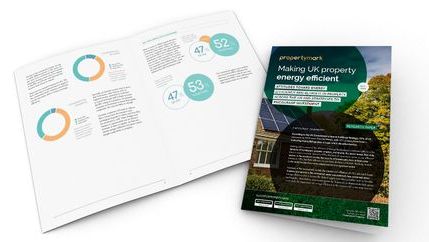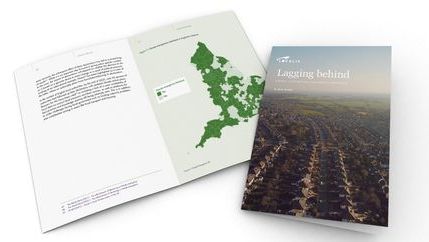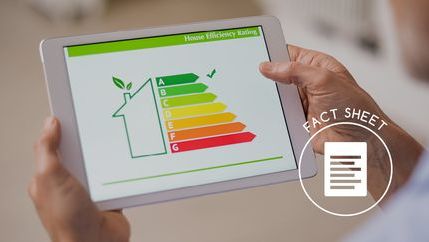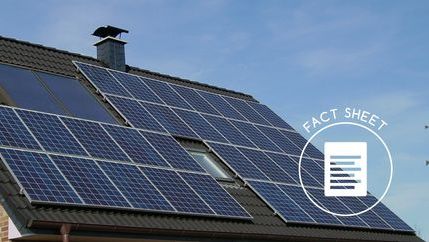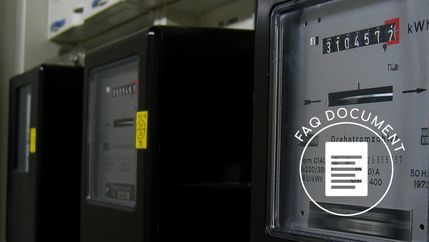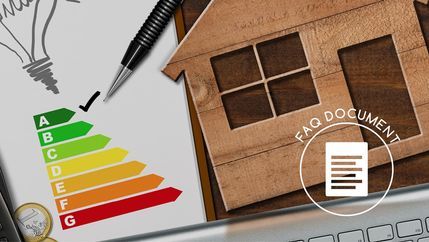What is the situation across the UK?
The below tabs show the devolved governments strategies towards improving energy efficiency on the journey to net zero emissions.
In October 2021, the UK Government published its Heat and Buildings Strategy. The strategy sets out how the UK will decarbonise homes, and our commercial, industrial and public sector buildings, as part of setting a path to net zero by 2050.
The role of decarbonising buildings in delivering carbon targets for Wales is set out in the Welsh Government’s Low Carbon Delivery Plan.
In October 2021, the Scottish Government published Heat in Buildings Strategy — achieving net zero emissions in Scotland's buildings.
The Energy Management Strategy and Action Plan for Northern Ireland Central Government aims to support and significantly accelerate actions to maximise exploitation of energy efficiency opportunities.
Propertymark's position
We want to see more energy-efficient homes, but new rules and requirements must be realistic and achievable. Without providing landlords and homeowners with incentives and access to sustained funding, it is unlikely that energy efficiency targets for the private rented sector and a reduction in emissions across the property sector will be met.
Our recommendations
Our recommendations will assist homeowners, landlords, and tenants in saving money, creating new jobs, and combating climate change.
Our recent consultation responses
Vital intel for property agents as Ofgem becomes heat networks regulator
Formal regulation marks a major shift in how these systems are overseen and how consumers are protected. For property agents, this change is important because it will affect how heat networks are operated, what information consumers must receive, and how agents advise clients and market properties connected to networks. Hundreds of thousands of homes, particularly in blocks of flats and new developments, are already connected, and their use is expected to grow as part of the UK’s decarbonisation plans.
Bold Budget is needed for resilient housing sector
Propertymark has responded to the Welsh Government’s Draft Budget for 2026–27 with a warning that without tax reform, the continued loss of landlords will deepen affordability issues for tenants and increase pressure on local authorities to house more people in the social sector. A vibrant private rented sector (PRS), alongside investment in social and affordable housing, is essential to meet demand and ensure all people in Wales have access to decent and secure homes.
Timetable for energy efficiency regulations must be realistic and achievable
Propertymark has responded to the Scottish Government’s plans to require private rented homes to meet a new EPC Heat Retention Rating of band C — from 2028 for new tenancies and 2033 for all lets — focusing on a property’s fabric and heating system to better link upgrades with reduced emissions. Whilst we support the principle of improving energy efficiency, we are concerned that the proposals place significant financial and practical pressures on landlords.
Fairer heat network pricing protection realities
Propertymark has welcomed Ofgem’s proposals to improve transparency and implement fair pricing protections for heat network customers, but warns that implementation must consider the operational realities of managing agents and ensure true consumer fairness.
Boiler Upgrade Scheme must evolve to protect availability of homes
Propertymark’s response to the Department for Energy Security and Net Zero (DESNZ) consultation sets out a clear and urgent case for reform of the scheme, which provides financial support for households in England and Wales to install low-carbon heating systems like heat pumps or biomass boilers. A more ambitious scope is needed to help overcome the barriers landlords face in meeting the UK Government’s energy efficiency ambitions — especially the proposed Minimum Energy Efficiency Standard (MEES) of EPC C for new tenancies by 2028.
Path to net zero must not lead to zero homes
Proposals from the Department for Energy Security and Net Zero (DESNZ) to introduce higher Minimum Energy Efficiency Standards (MEES) for the private rented sector (PRS) raise serious concerns about the practicality, affordability, and likely impact on housing availability. In Propertymark’s response to consultation, informed by input from over 350 members from England and Wales, we insist the UK Government must work closely with the sector to design a fair and sustainable route to energy efficiency.
Guidance for members
Our latest guidance for ARLA Propertymark and ARLA Inventories members discusses the state of play across the UK. It gives practical tips on what you can do right now and how to access available funding from a variety of schemes across the devolved Governments.
Smart meter awareness
Smart meters are a part of plans by policymakers for a smart energy system that will facilitate carbon emissions reductions—a key focus is improving take up in private rented properties.
Propertymark believe that tenants, landlords, letting agents and energy companies all have a role to play in improving smart meter take up but this can often be down to different types of properties and tenancy management arrangements in the private rented sector.
Smart Energy GB has launched a dedicated page on their website with information about smart meters for the private rented sector, including resources for private landlords, letting agents and tenants.
Research reports
Making UK property energy efficient
Financial implications, practicality, consequences, and communication surrounding energy efficiency measures are key concerns cited in Propertymark’s latest report which provides recommendations to help homeowners, landlords, and tenants save money, create new jobs and fight climate change.
Lagging behind: energy efficiency in low-viability properties
This report raises concerns over the affordability of retrofitting properties and highlights that residents in the North of England will be the hardest hit. Failure to factor in huge regional variations in property costs when incentivising homeowners and landlords to meet national net zero targets risks deepening economic inequality.
Additional resources for members
In addition to our energy efficiency guide, we also have several fact sheets and frequently asked questions to help assist members on specific areas of energy efficiency legislation.
Fact sheet: Spray foam installation
Spray Polyurethane Foam (SPF), commonly referred to as spray foam, is a liquid material used to insulate homes. An alternative to traditional building insulation, it's especially advantageous for improving energy efficiency through insulating difficult and tight spaces. However, consumers should carefully consider the impact it can have on valuations, lenders decisions and surveys.
Fact sheet: Minimum Energy Efficiency Standards
The Energy Efficiency (Private Rented Property) (England and Wales) Regulations 2015 introduce measures to improve the energy efficiency of private rented property.
Fact sheet: Tenant’s Energy Efficiency Improvements
The Energy Efficiency (Private Rented Property) (England and Wales) Regulations 2015 introduce measures to improve the energy efficiency of private rented property under the Energy Act 2011.
FAQs: Non-domestic private rented property: minimum energy efficiency standards for commercial property
Since 1 April 2018 all new tenancies of non-domestic (commercial), properties must reach the minimum Energy Performance Certificate (EPC) standard of E or above. The Energy Efficiency (Private Rented Property) (England and Wales) Regulations 2015 make clear that as of 1 April 2023, the regulations will apply to all tenancies, including existing and ongoing tenancies.
FAQs: Heat and Buildings Strategy
The Heat and Buildings Strategy sets out the UK Government’s plan to reduce greenhouse gas emissions to Net Zero by 2050. Learn more about the scheme and the implications for estate, letting and commercial agents.
FAQs: New digital service to improve energy efficiency performance
On 30 September 2020, the UK Housing Minister launched a new digital service to help homeowners improve the energy performance of their homes and cut their energy bills.







